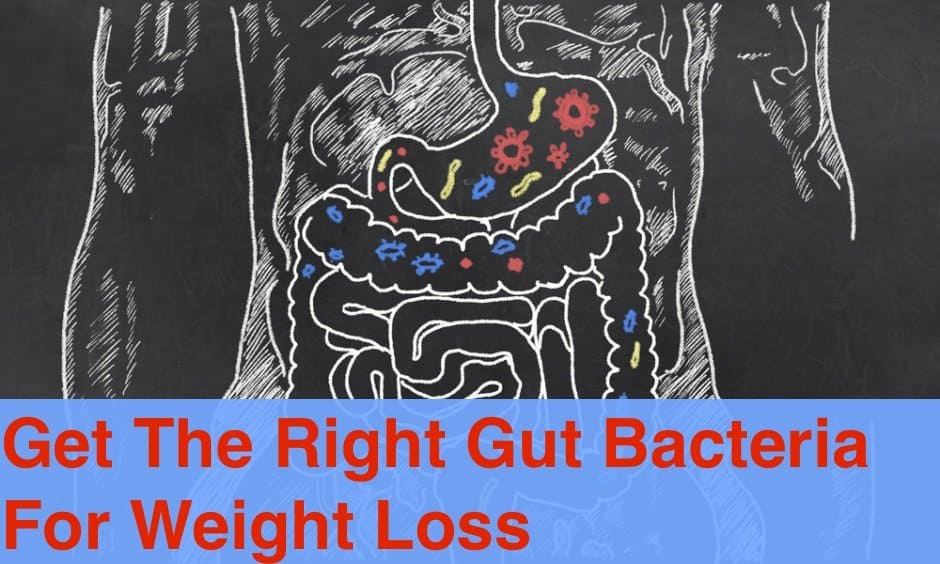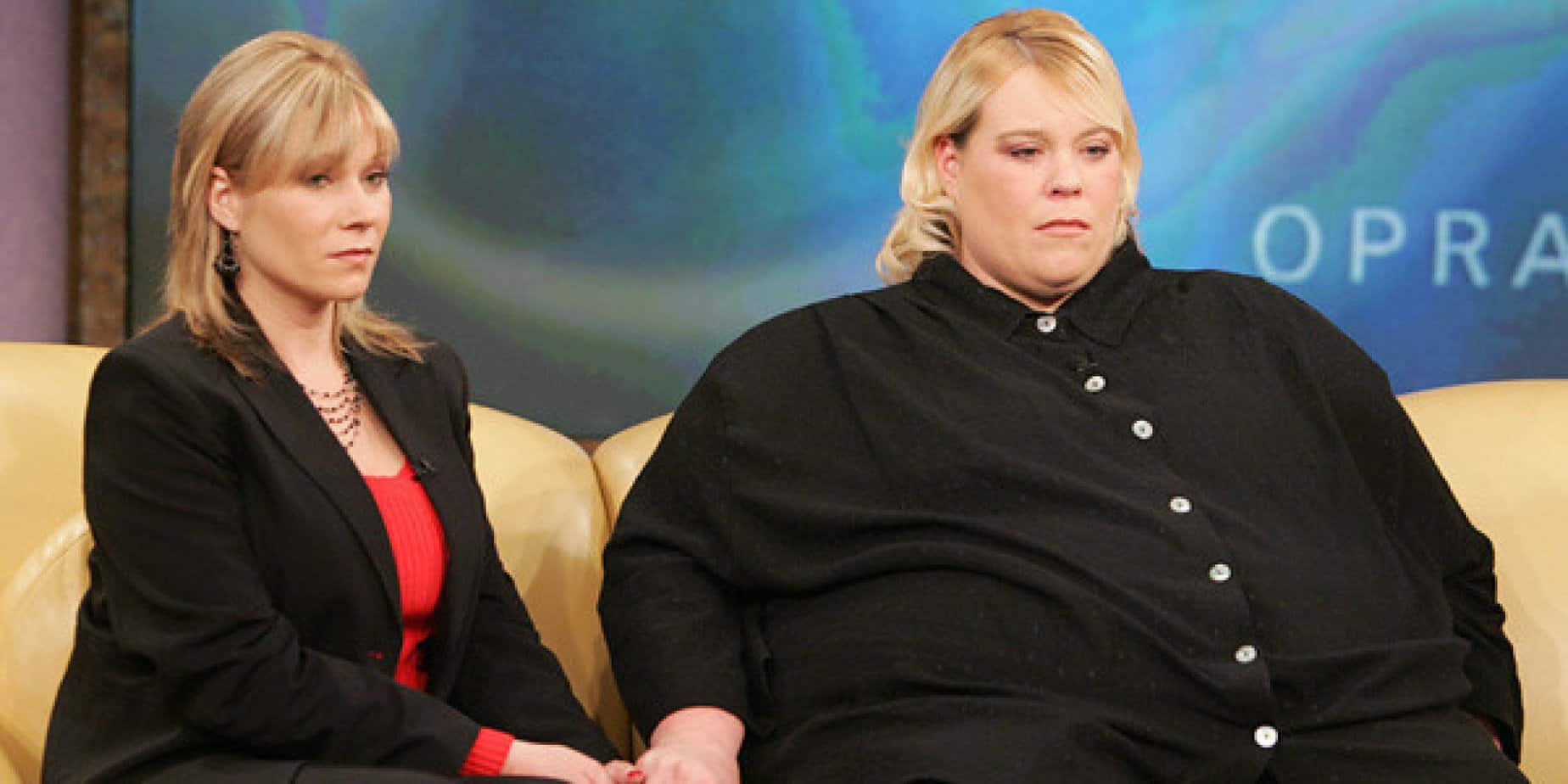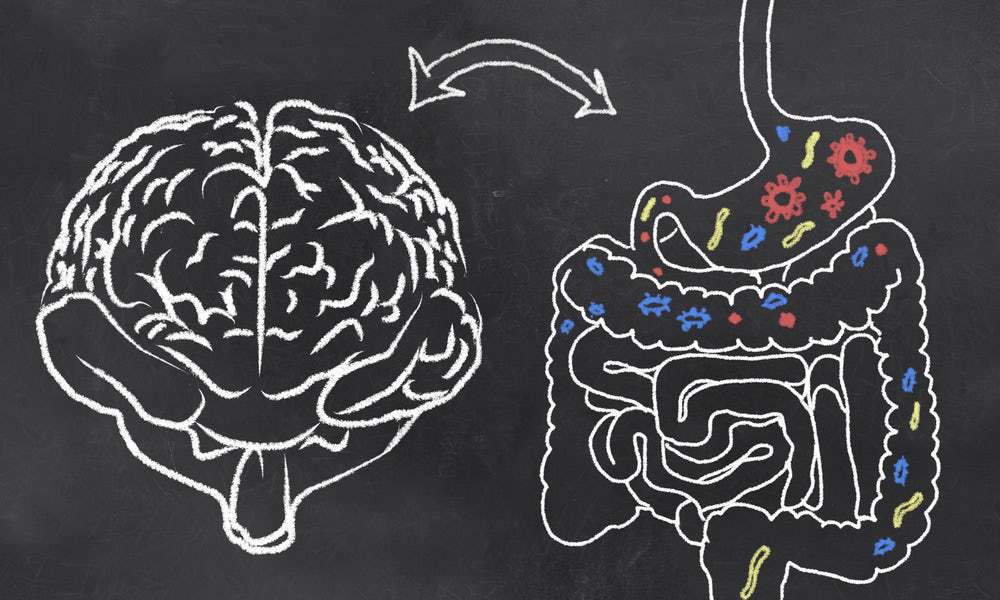Get The Right Gut Bacteria For Weight Loss, Part 1
Do you have the right gut bacteria for weight loss? You have more than one trillion bacteria in your gut and elsewhere in and on your body and many of them can strongly influence your body composition; meaning how fat, or not, you are. Learn which probiotics can help make you leaner.
I’M SIMPLY blown away by all the information researchers are discovering about how extensively our microbiome affects not only our overall health, but our body composition, inflammation, hormone function, brain cognition and much more.
As I wrote in Heal Yourself and Become Superman:
Much of your health is in the hands of single-celled bacterium that reside in and on you. This is the world of the microbiome, and scientists are discovering that specialized probiotics can help heal a variety of health issues that boggles the imagination.
Over the last few weeks, I’ve read dozens of new studies about how the bacteria colonies that constitute our microbiome influence nearly every aspect of our health — or disease — and am inspired to write a five-part series on the topic:
Part 1 (this article) examines how different bacterial strains influence body composition; ie: whether you’re fat or thin;
Part 2 digs into the brain connection to our microbiome;
Part 3 will reveal those chronic disease most affected by our microbiome;
Part 4 will look at how our skin is affected by our microbiome; and finally
Part 5 will list the best and worst foods to feed those trillion-plus critters that make up our microbiome.
Each of the five parts in this series will present summaries of the latest research.
This article will review how diet and deep transcranial magnetic stimulation can either increase the population of bacterial strains that support weigh loss or weight gain.
Let’s begin…
Get the Right Gut Bacteria For Weight Loss and Overall Health
Bet you’ve never wondered about how your gut bacteria can mess with your weight. More likely, you think that extra poundage is do to a lack of activity, hormonal disruption, or SAD (Standard American Diet).
Surely, all of those are substantial factors, but there are literally trillions of unseen and relatively unknown factors that contribute big time to your weight gain.
I’m speaking about the single-cell, microscopic bacterium that make up your microbiome, and I’ve spoken about it quite a lot already. (See all this.)
Microbiome is the term used to describe the vast ecology of bacteria (and viruses and fungi) that live on and in the body, and in an article about which bacteria for weight loss should populate your gut, dietitian Lea Basch explains how the right kind of bacteria can help you become (or remain lean) and the wrong kind can contribute to weight gain.
Dr. Raphael Kellman, author of The Microbiome Diet, says:
Simply put, if you get the microbiome—that collection of bacteria inside you—healthy, you will lose weight. It’s less about eating a certain percentage of carbohydrates, protein, and fat than about correcting the overgrowth of unhealthy bacteria, which is making you crave the wrong foods, triggering inflammation.
Lea Basch lists three reasons improving your balance of good bacteria to bad bacteria may aid in weight loss:
(1) Different bacteria in your gut extract different amounts of nutrients. For instance, the Firmicutes bacterial strain convert food to calories at a greater rate than Bacteroidetes; therefore, to loose weight it’s helpful to increase Bacteroides and decrease Firmicutes.
(2) Gut bacteria can increase chronic inflammation, which in turn can increase appetite and insulin resistance, causing unhealthy food cravings and suppressing the immune system.
(3) A healthy gut helps production dopamine and serotonin, two feel-good neurotransmitters that are produced in the gut, affect the brain by suppressing moodiness, depression and anxiety, and thereby decreasing stress-related eating.
Ms. Basch also delves into the foods that feed your “good” (or “beneficial”) bacteria and those that feed the “bad” critters, a topic I’ll return to in Part 5.
What Twins Tell Us About Gut Bacteria and Body Weight
In an article about how diet and certain gut bacteria work together to expand your belly, Sheryl Wood describes two studies that examine the body composition of twins, subjects for which researchers can eliminate differences in metabolism due to genetic differences that might have affected study participants’ weight gain over these nearly decade-long studies.
I’m relieved by how she begins the article:
“Potbellies don’t have to happen as we age…”
The findings:
- Even if the same amount of calories were consumed, those who ate higher amounts of dietary fiber—from foods like fruit, vegetables, and whole grains—were less likely to gain weight over the study period than those who ate less fiber.
- The more fruits, cheese and yogurt, and whole grain products consumed, the lower the belly fat; the more fried and fast foods, eggs, and red, processed meat, the higher the amount of belly fat.
- Women whose weight remained about the same or those who lost weight had higher numbers of certain types of gut bacteria — Bifidobacterium — and more different kinds of bacteria in their gut.
- Eubacterium dolichum was the only bacteria associated with increased belly fat—but the studies didn’t provide data that could explain the finding. Also Bacteroides in the gut bacteria was associated with increased risk of weight gain, but there were also fewer different types of bacteria in the gut of people who gained weight. Consequently, in this particular study, Bacteroides couldn’t be definitely identified as contributing to the weight gain, although (as mentioned in Lea Basch’s article above), Bacteroides can influence weight gain.
The researcher summarize their findings by saying that an unhealthy diet not only influences “viseral fat mass” but an unhealthy microbiome which also increases the likelihood that a person gains weight.
Zap Your Brain, Change Your Microbiota, Lose Weight
ScienceDaily.com reports that:
A new study finds that a noninvasive electromagnetic brain stimulation technique helps obese people lose weight, partly by changing the composition of their intestinal bacteria — the so-called gut microbiota.
The study’s principal investigator, Livio Luzi, M.D., said that an underlying cause of obesity may be an impaired gut microbiota composition, an imbalance in the complex mix of beneficial and harmful microorganisms that inhabit the digestive tract, and can alter the brain’s signals for appetite and satiety, or fullness.
OK, we kinda know that by now, but what about the brain-zapping thing?
Well, the scientists grabbed some obese people, and presumably with their permission gave them deep transcranial magnetic stimulation (dTMS) three times per week for five weeks. Another group of obese people were zapped with some “sham stimulation”. They then examined both group’s poo.
Results of the fecal analysis demonstrated that dTMS-treated subjects had greatly increased quantities of several beneficial bacterial species with anti-inflammatory properties, such as are found in healthy people. The control group (given a sham stimulation), however, had no clinically relevant alterations in their microbiota composition.
This means that dTMS had a beneficial effect on both weight loss and change in microbiota composition and has an anti-obesity effects through alteration of the gut-brain axis.
Now, I know the question on everyone’s mind is, “Can I buy a dTMS zapper on Amazon.com?”
No, you can’t, but you can buy certain probiotics, which I’ll address below in”Your Takeaway”.
The important thing to remember from this zap study is not how the beneficial bacteria were produced, but that there are bacteria that are beneficence to health and support a healthy body composition.
UPDATE: I just discovered that there’s Life Extension probiotic supplement called Waist-Line Control that claims to target abdominal fat by using S. cerevisiae derived peptides, which reduce the activity of enzymes responsible for the manufacture of fat from excess food energy. I haven’t used it, can’t vouch for it, but you may wish to learn more about it.
Your Takeaway
- What kind of bacteria populate your microbiome is very important.
- Some bacteria influence weight gain (Bacteroides and Eubacterium dolichum) and others weight loss (Firmicutes).
- You need to ensure that the population and different strains of bacteria in you are the right gut bacteria for weight loss.
- Eat foods high in fiber and fermented foods to feed the fat loss promoting bacteria.
- Supplement with probiotics that have the bacterial strains that promote fat loss.
- One particular bacterial strain, Lactobacillus gasseri, may have an anti-obesity effect, in part by influencing the body’s regulation of leptin, a hormone that helps control sensations of hunger and fullness. (See the study; buy Lactobacillus gasseri on Amazon.com.)
In Part 2, I’ll show you how your microbiota affect your chance to get or prevent chronic diseases, such as cancer and diabetes.
In the meantime, there’s lots more to know about the trillions of bacteria that have formed a symbiotic relationship with nearly every part of you, whether you know it or not. I’ve written much about it…
Click right here to see my microbiota articles
See you in Part 2…
Last Updated on August 16, 2020 by Joe Garma





